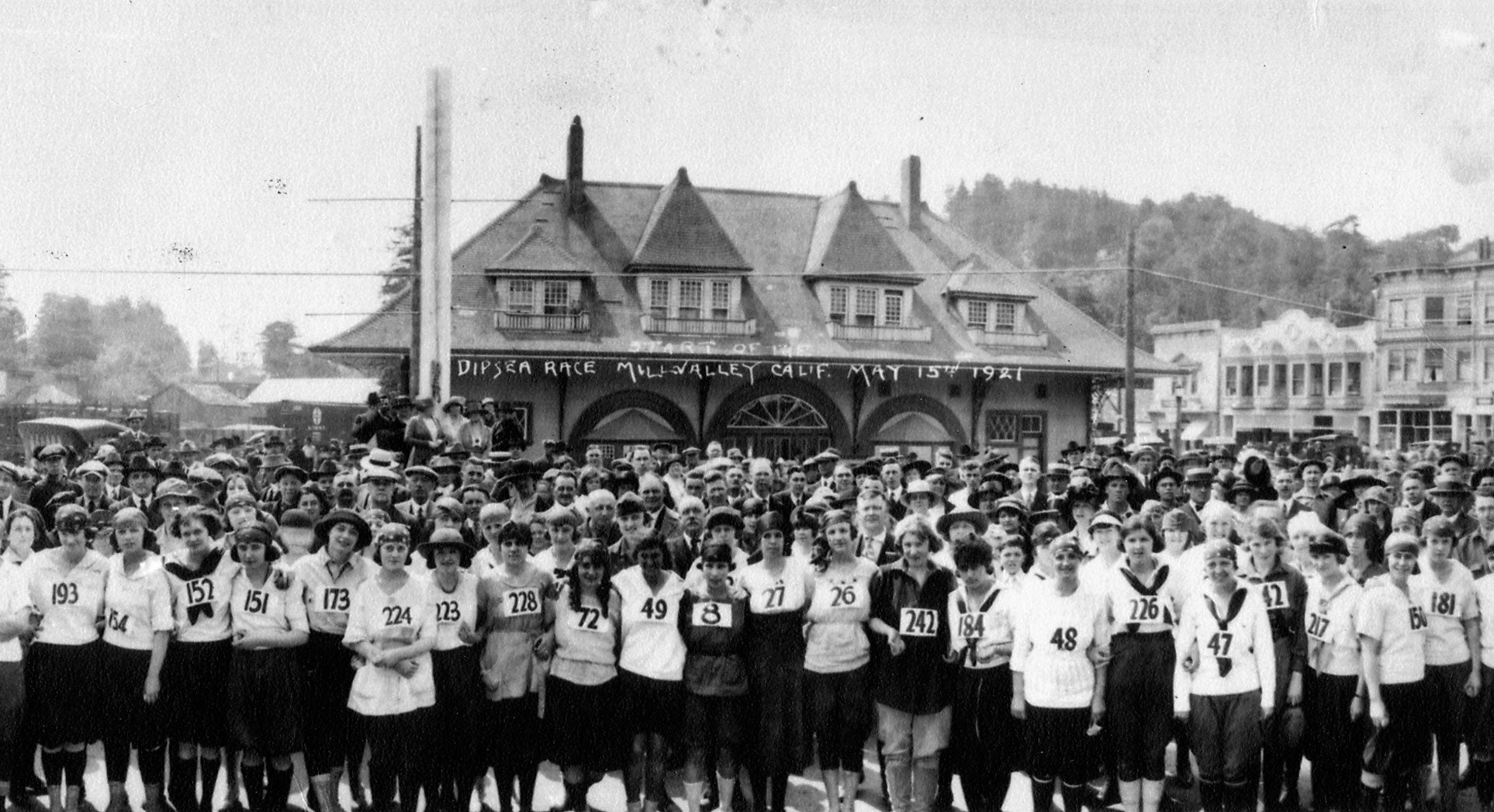Women's Dipsea 100-Year Tribute Hike

The Women’s Dipsea Hike, held April 21, 1918, was the first cross-country sporting event in the United States organized exclusively for women. To honor its centennial anniversary, on April 21, 2018 at 9:00 am, 500 participants will run or hike from Old Mill Park in Mill Valley, California to Stinson Beach, a national park site within Golden Gate National Recreation Area.
The first Women’s Dipsea Hike was held in response to the all-male Dipsea Race—the oldest trail race in the United States and second oldest footrace behind the Boston Marathon. The race was called a “hike” to escape an Amateur Athletic Union (AAU) ban on women competing in long-distance races.
The popularity of the Dipsea trail has spurred the Double Dipsea race (13.7 miles) and the Quad Dipsea (28 miles); the historic trail remains in the common lexicon of trail runners and racers from all over the nation travel to California to run to Stinson beach (a couple of times perhaps).
The Women’s hike gained popularity and began to eclipse the men’s race; the event became one of the first forces to showcase the athletic abilities of women, which was unheard of at the time. There were countless protests to the women’s “hiking costumes” and undue pressure on the female body—the hike eventually ended in 1922 due to these outside pressures, namely the belief that these hikes were detrimental to a woman’s reproductive system.
100 years later, women have made leaps and bounds in athletic equality and respect. Ladies accomplish massively impressive finishing times in prestigious races with such regularity that these historic ideologies seem far-fetched and absurd—yet there was a time when one was banned from achievement due to gender alone.
Related: The First Woman to Run Boston Trained on the Trails
Today, women like Camille Herron and Pam Reed are getting first place overall—for men and women—in 100-mile races. Iconic long-time ultra marathoners like Ann Trason are finishing ultra-marathons with enough grit and fortitude to silence every mustachioed misogynist from the 20s. Iconic female athletes throughout the course of the century, such as marathoners Joan Samuelson and Shalane Flanagan, have set the bar for women—and it is on par with men.
This centennial event brings awareness to the decades of work put in by our friends, mothers and grandmothers to reach a point where women are not only permitted to compete, but to thrive—and frankly, to totally kick ass.
The registration form for the tribute hike on April 21 can be downloaded here. The hike is limited to 500 participants, who are encouraged to dress like it’s 1918 to honor women who competed in the hike.